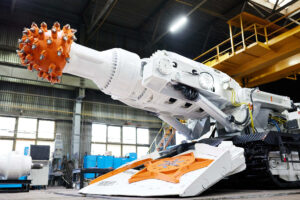
Ukrainian tour operator Join UP! provided services to over 730,000 tourists in eight markets in 2024, according to Marina Dayneko, head of the Join UP! sales office, in an interview with the Interfax-Ukraine news agency.
“We provided services to over 260,000 tourists from Ukraine (+10% compared to 2023). The Polish unit served 142,000 tourists, a sixfold increase compared to 2023, over 113,000 tourists from the three Baltic countries (up 12%), almost 110,000 from Moldova (+40%), more than 62,000 from Romania (2.4 times more) and 43,000 from Kazakhstan (+65%). We are seeing growth in all markets,” she said.
As reported, the travel company Join UP! LLC was established in 2013 with a registered capital of UAH 72,671,000. The ultimate beneficiaries are Yuriy and Oleksandr Alby. According to the OpenDataBot service, at the end of 2024, the tour operator’s revenue decreased to 376,000 UAH from 16.639 million UAH in 2023, and its net loss decreased to 217.451 million from 233.341 million, respectively.
The brand’s international expansion covers eight markets: the Baltic states, Kazakhstan, Moldova, Poland, Romania, and the Czech Republic. Preparations are underway to launch operations in Slovakia and Hungary. Last year, the brand also opened its first franchise agency on the international market in Katowice, Poland.

At least five new shopping centers will open in various regions of Ukraine this year, with seven more planned for 2026-2027, according to Retail&Development Advisor (RDA), the exclusive broker for these properties.
According to a press release, the Mayak A1 shopping center in Odessa (Prospekt Polkovnika Guliaeva) is scheduled to open in the summer of 2025, with a total area (GBA) of 13,000 square meters, including 10,000 square meters of leasable space (GLA). In September, there are plans to open the A7 shopping center (Ivano-Frankivsk, Galitska Street, 57) with a GBA of 10,100 square meters and a GLA of 7,500 square meters, as well as the first phase of Retail Park Mukachevo (Chervonogornaya Street, 8) with a total area of 9,000 square meters. In the future, the retail park project in Mukachevo envisages the construction of a second phase with an area of almost 16,000 square meters. In October, the opening of the Rosvigovsky shopping center (Rosvigovskaya Street and General Petrov Street) is planned, with a GBA of 8,500 square meters and a GLA of 5,100 square meters. The launch of the Uzhgorod shopping and entertainment center “Ukraine” (Kirilla and Mefodia Square) with a total area of 20,400 square meters has been announced for December, with 11,700 square meters allocated for rent.
In March 2026, Silver Park Mukachevo (Tomash Masaryk Street) with an area of 4,000 square meters is scheduled to be put into operation. In the fourth quarter, the Lviv shopping center Road Park (Ring Road) is planned, with a GBA of 13,500 square meters.
The Tera Hall shopping and entertainment center (236 Ruska Street) and the Gallery Chicago shopping center (137B Nezavisimosti Avenue) are being prepared for 2027 in Chernivtsi, with a total area of 16,900 square meters and 9,200 square meters, respectively. Plans for this period also include the launch of the Residents Mall shopping and entertainment center (Slavianska Embankment) in Uzhhorod, with a GBA of 31,700 square meters, the Riverville shopping and entertainment center (Bab’yaka Street), with a GBA of 31,700 square meters, and the Kvartal City shopping and entertainment center (Lviv, Shevchenko Street, 313). GBA – 49,300 sq. m.
Retail & Development Advisor is a Ukrainian consulting company providing a full range of services in the field of retail and office real estate. It offers architectural design, brokerage, property management, outsourcing of shopping center development/leasing departments, and market analytics services.

Corum Group, a machine manufacturer and part of DTEK Energy, has produced the RH110 roadheader, the 11th in the line since production began in 2023, the company announced on its Facebook page.
According to the company, the new shearer has over 60 improvements, including hydraulic track chain tensioning to reduce downtime and increase reliability, and improved hydraulic distributors to ensure stable operation in harsh conditions.
In addition, the harvester has 19 pressure sensors for safer and smarter maintenance, and updated software for complete control over energy consumption and resources.
The RH110 is a mid-range combine harvester weighing 55 tons (20% more than previous models) with a 132 kW electric motor, which allows it to work in the hardest rock. The cost of the equipment has not been disclosed.
As reported, machine builders began manufacturing this line of combines in early 2023, and as of the end of 2014, eight had been manufactured, with a total of six combines planned for release in 2025.
Corum Group is a leading manufacturer of mining equipment in Ukraine. It is part of DTEK Energy, an operating company responsible for coal mining and coal-fired power generation within Rinat Akhmetov’s DTEK energy holding.
As reported, in January-April of this year, the company’s machine builders manufactured and repaired 1,136 units of mining equipment, including three new combines. Also, 735,000 spare parts and components were delivered to mines.
The company does not disclose its financial results.

Bitcoin hit a new all-time high on Thursday, with its price surpassing $111,000 for the first time amid a weakening US dollar.
Traders are increasingly optimistic about the prospects for cryptocurrency due to growing institutional demand.
The US Senate voted by a majority to support a revised version of the GENIUS Act. This document provides for federal regulation of stablecoins, which are crypto assets pegged to traditional currencies. It will now be sent for further discussion. The authors of the bill hope that it could be passed as early as this week.
This will provide greater regulatory clarity for companies dealing with digital assets, experts say.
Weak results from the US government bond auction, as well as fears of an increase in the country’s budget deficit, pushed the dollar to a two-week low against the yen. These same reasons caused the US stock market to decline the day before. As a result, investors began to look for alternative investments, turning to cryptocurrencies and gold.
Bitcoin is currently trading at $110,540, which is 1.7% higher than at the close of the previous session. Earlier, the rate reached a record high of $111,878.

The Trump Organization and a local partner are exploring plans to build a skyscraper in Vietnam’s business hub of Ho Chi Minh City, with Eric Trump expected to visit this week, a Vietnamese government document seen by Reuters shows.
The visit by the son of U.S. President Donald Trump comes just after Vietnam gave his family business the green light for a separate $1.5-billion golf project as the export-reliant southeast Asian nation holds talks with Washington to avoid punitive trade tariffs.
Ho Chi Minh City officials are invited to “attend a dinner party with Eric Trump, senior vice president of the Trump Organization” set for Thursday evening at a central hotel in the city, according to the internal document.
The May 15 document, signed by the acting head of the foreign ministry department in the city, said representatives of the Trump Organization would visit an upscale central area.
There they would “survey the proposed location of the Trump Tower building and hope to have a working session with the city’s leaders about this project”, it added, inviting local authorities to cooperate with the business delegation.
The Trump Organization is run by Trump’s children after he handed off its leadership after he won his first term as U.S. president.
Another meeting between Ho Chi Minh City authorities and a representative of the venture between the Trump Organization and its Vietnamese partner, real estate developer Kinhbac City (KBC.HM)
, opens new tab, is set for later on Monday, the document showed.
Both meetings are confirmed in a public schedule published on Monday on the Ho Chi Minh City website, which does not, however, elaborate on their content or name the participants.
Vietnam’s foreign ministry, the Trump Organization and Kinhbac City did not immediately reply to requests for comment.
With the skyscraper plan in an early stage, it is unclear if it will be pursued by the Trump Organization and if authorities will approve it.
MULTI-BILLION-DOLLAR PLANS
Vietnam faces tariffs of 46% on its exports to the United States if it cannot strike a compromise with the White House before a pause on global “reciprocal” duties expires in July.
It has made pledges to Washington to avoid tariffs, from lowering tariffs and non-tariff barriers, combating trade frauds and counterfeiting, and offering favourable conditions to Starlink, owned by Trump’s close ally Elon Musk, to roll out internet services in the country.
The plan for the Trump delegation’s visit, which could change, comes after Vietnam approved last week a plan by the Trump Organization and Kinhbac City to invest $1.5 billion in golf courses, hotels and real estate projects in its north.
A person with direct knowledge confirmed Eric Trump’s visit to Vietnam this week and said the groundbreaking ceremony for the golf project in northern Vietnam was set for Wednesday.
The person declined to be identified as the events were still being organised.
In March, Reuters reported that the groundbreaking event was set for May, and that the Trump Organization and its local partner were also seeking additional projects in the country.
Although they are considering multi-billion-dollar investments in Vietnam, it is unclear how the two share costs and revenues, and what conditions have been set for use of the Trump franchise.
The Trump Organization has luxury golf projects, existing or under development, in countries from Indonesia to the Middle East.
Ho Chi Minh City, plan for tower, Trump Organization, VIETNAM